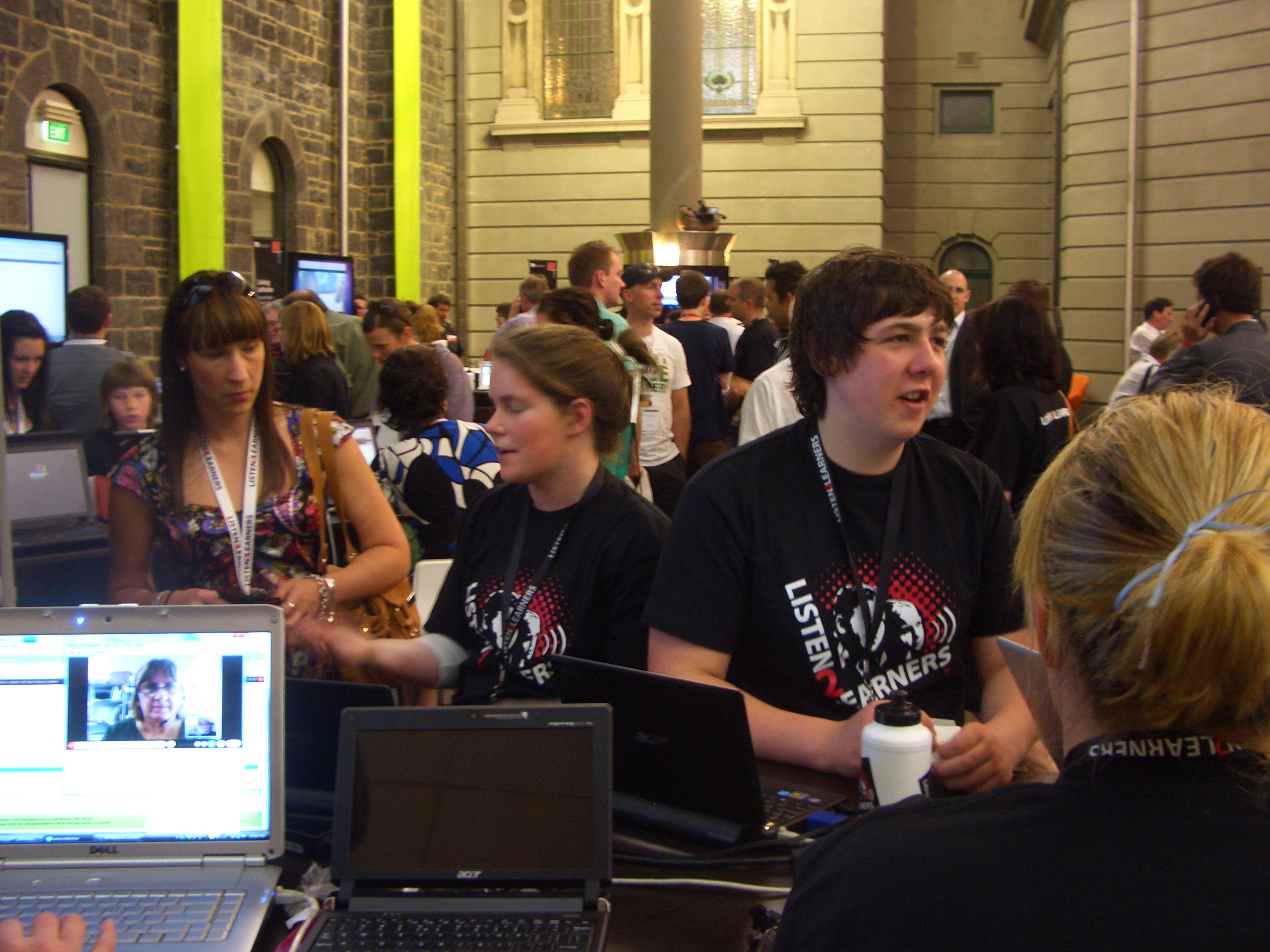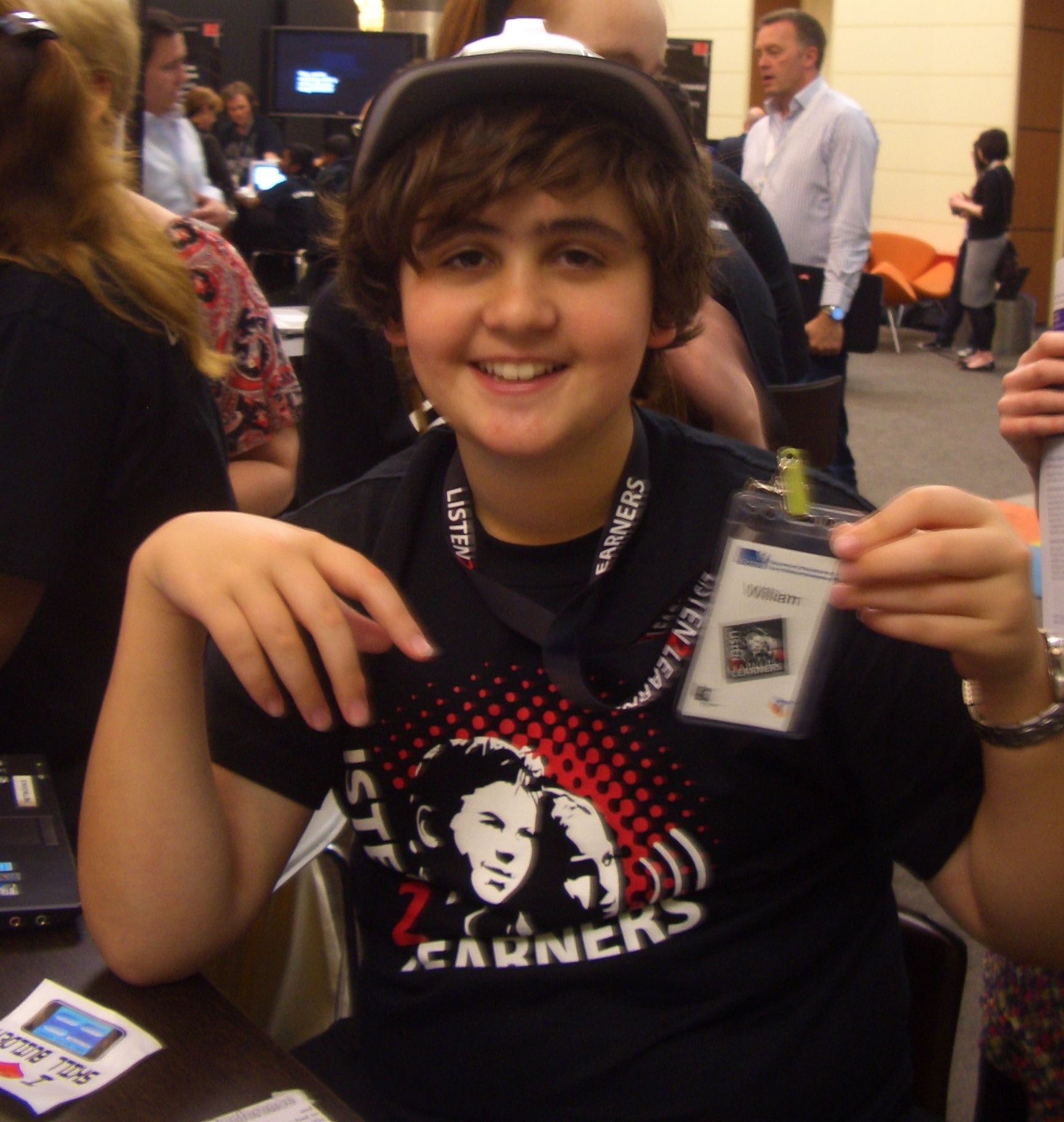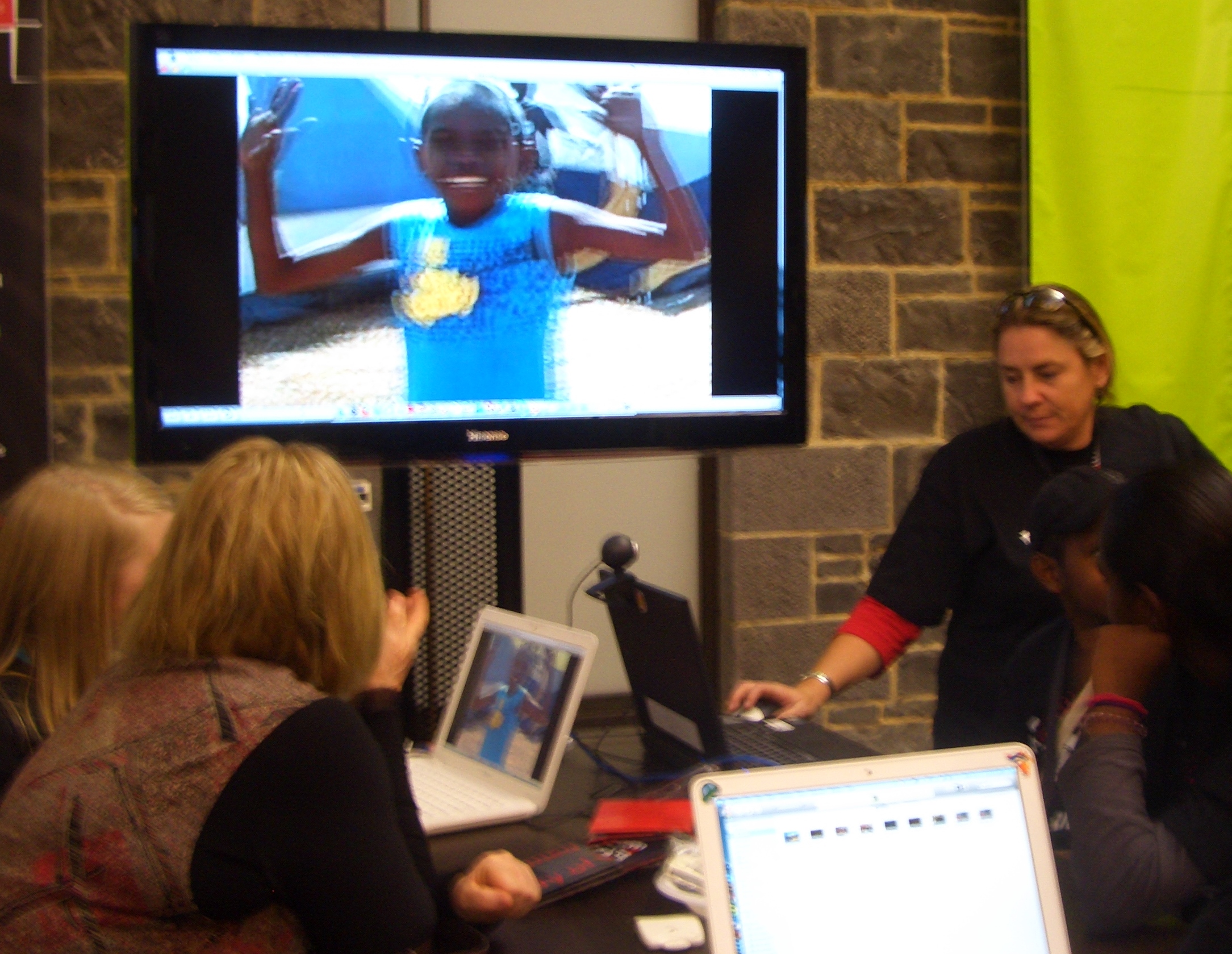When are students leaders and experts?
When we hand over the stage to them to play in.
When we give them more to do than listen to us.
When we trust them to be responsible and capable.
Yesterday I saw evidence of this at The State Library of Victoria’s Listen2Learners. Thirteen school teams, some collaborative, presented their learning to adults. They were articulate, intelligent, knowledgeable and impressive. The buzz in the room was palpable.
Young people may be learners today, but tomorrow they are employees, employers, citizens, CEOs and community leaders so decision makers in government, business, industry and the social arena are taking notice of how young people learn with technology.
What young people think and have to say is helping to shape decisions and inform policies.
I was impressed and excited by the showcase of what kids – many of them primary – can do given meaningful, collaborative, real-life projects and connected through technologies to learn from and with real people. My excitement was tempered by the thought of them entering secondary school, the fear that this freedom to learn would be taken away from them due to a fear of technology and the restrictive nature of a score-centred curriculum.
The groups showcased a variety of focus, approach and location. Sacred Heart School, Tasmania collaborated with Pularumpi School, Northern Territory. A student from the Tasmanian school said that the best part of the project was meeting the other students, learning about how different people and places can be in your own country. They worked in Google docs, online social networks, and used Skype to communicate and collaborate.
Students from Prospect Primary School, South Australia, became teachers when they reversed roles to show more than 70 teachers and school leaders how to produce a movie.
Their work had all the hallmarks of good teaching and learning; planning and storyboarding, brainstorming an authentic enquiry question, setting assessment criteria, modelling and coaching.
Students ran an online radio station, they demonstrated how rural schools connect for the best science education, created video games, prepared a cybersafety program for incoming primary students for orientation day, created applications to help users develop numeracy skills, used technology to learn instruments and play in online bands, designed a Multi-user Virtual Environment (MUVE), connected with students from around the world in virtual classrooms, and more.
It was extraordinary to see what these young students were capable of doing, and inspiring to witness their passion, engagement and enjoyment.
These kids really knew what they were talking about. They had to ask the hard questions throughout the process, and in many cases they had to provide written applications for a place on the team. They knew what they were talking about because they worked through the process and were engaged, not because they had listened to what they teacher had told them or studied a text. When I listened to these kids it was obvious that they had worked through the what/how/why and understood the thinking around and inside their project and process.
This was by far the most inspiring learning opportunity for me this year. And, to boot, I got the opportunity to chat with Stephen Heppell.
Read about the schools taking part in this event.





